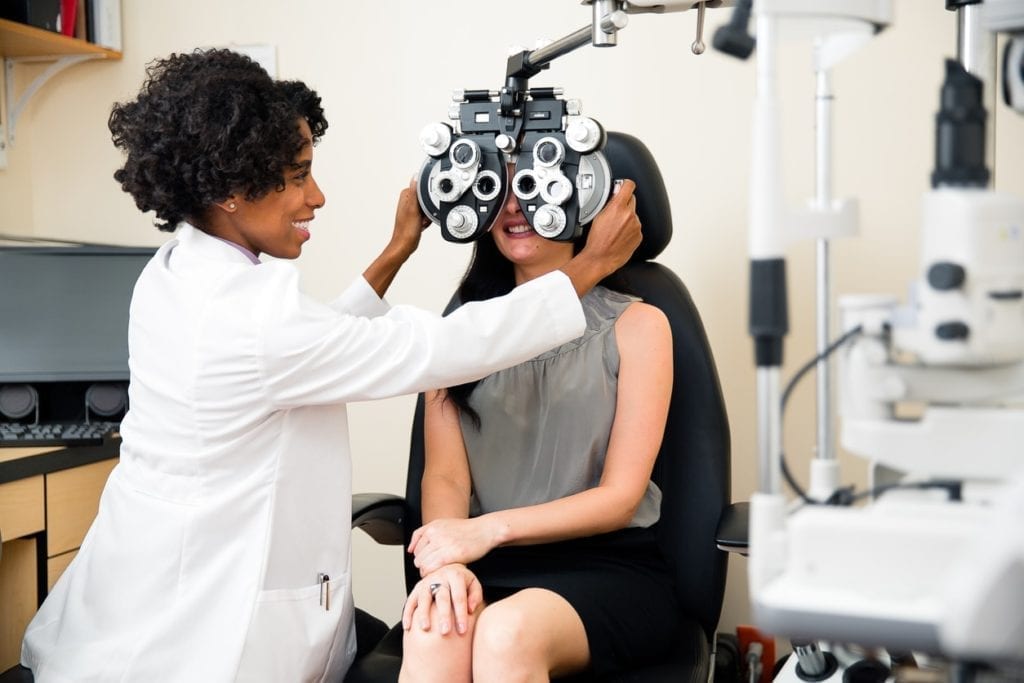Getting sued for malpractice is a no-win situation, and unfortunately, even the best practitioners run the risk of being sued. Even if you’re not at fault, you have a lot to lose. However, there are ways you can avoid a suit, and survive if it does happen.
With scope of practice expansion and an ever-widening array of diagnostic modalities and treatments, standard of care is a moving target, especially for optometrists. The importance of professional liability insurance and careful business practices for optometrists can’t be stressed enough.
Best Practices
There are some precautionary steps you can take to protect yourself and decrease your risk of a possible malpractice claim.
Chairside Manner
Your traits and habits should communicate warmth and compassion. Patients value empathy in their physicians. A strong patient-doctor relationship is protective against malpractice claims.
Documentation and Communication
If your exam records don’t document a diagnostic test, it’s assumed that it was not done. Your duty as a practitioner is to maintain an accurate and complete record, which can be challenging in the age of electronic health records (EHR). Clearly communicate your diagnosis to the patient, especially if there is potential for vision loss. For inconsequential findings, such as a benign iris nevus, it’s a judgment call whether to mention it.
Routine Automated Screening Visual Fields, Tonometry and Dilated Eye Examination
A disproportionate number of conditions practitioners allegedly failed to diagnose could have been detected with these three measures. Liberal use of pupil dilation is perhaps the single most important action an optometrist can do to reduce the likelihood of a misdiagnosis that results in a malpractice claim.
Over-Refer
If a diagnosis is out of your expertise, document the reason for referral and the name of the practitioner (if known) or type of specialist, and explain the rationale for the referral to your patient. Provide the doctor a referral letter or a copy of your exam findings and diagnosis. Especially with high-risk conditions, make sure you or your staff confirm the appointment was made and document the appointment time in your records.
Document Declined Dilation
Dilation is crucial to confirm myriad diagnoses. If the patient recognizes the increased risk and makes an informed decision to decline dilation, thereby hindering your ability to provide a definitive diagnosis, this should be memorialized by the patient’s signature with a date.
Stay Up-to-Date
Clinicians should remain current with continuing education and certifications, as diagnostics evolve with new technology, clinical practice guidelines, and court precedents.
Professional Liability Insurance for Optometrists
It is in your best interest to obtain professional liability insurance, particularly a policy developed to address the risks of optometrists. Unfortunately, it is inevitable that good doctors will sometimes get sued for malpractice. It’s not possible to eliminate all medicolegal risk, which is why professional liability insurance for optometrists exists to have your back.
About Bozzuto & Co. Insurance Services, Inc.
Bozzuto & Company Insurance Services has provided business and personal insurance solutions to clients throughout California since its founding in 1981. Our experienced staff understands the unique needs that each person has when insuring their lives and their businesses, and we pride ourselves on our deeply personal customer service. We are happy to help you through every step of the insurance selection process. Contact us today at (800) 400-6394 to learn more about what we can do for you.
FOLLOW US:




